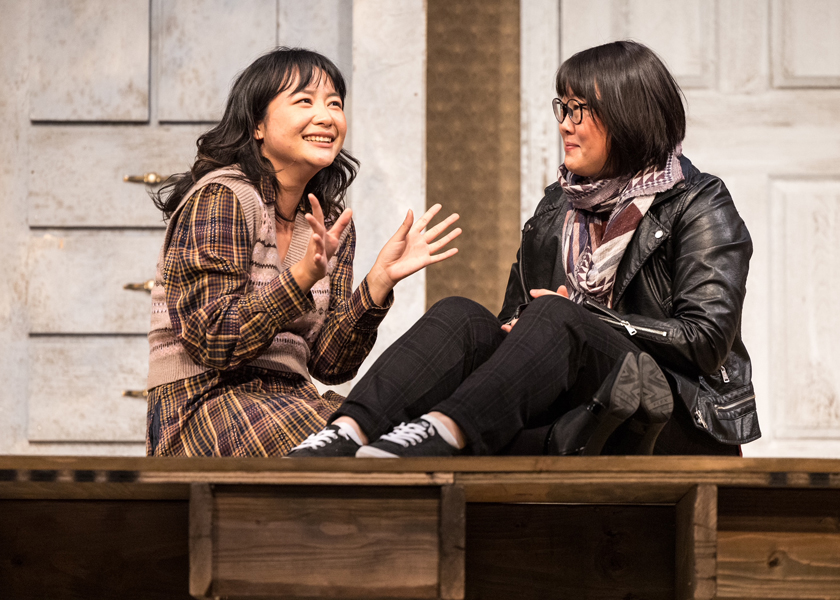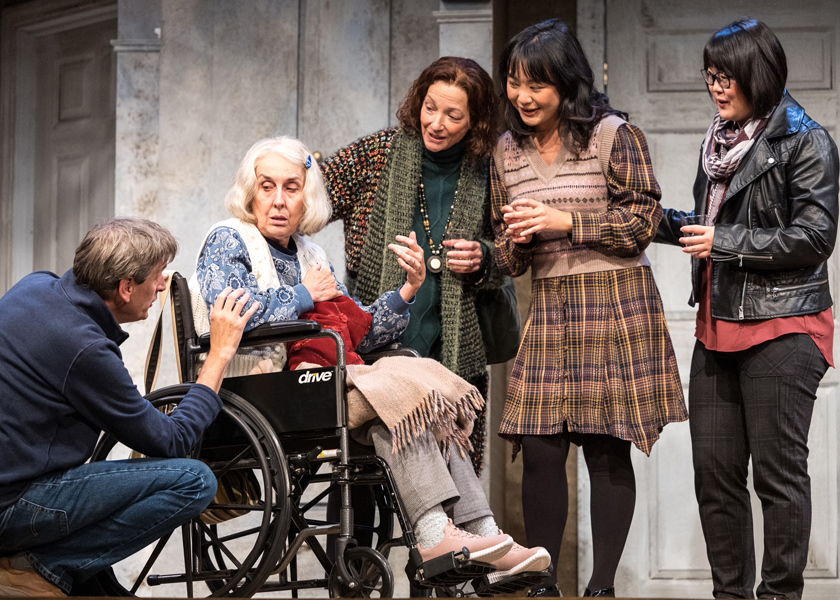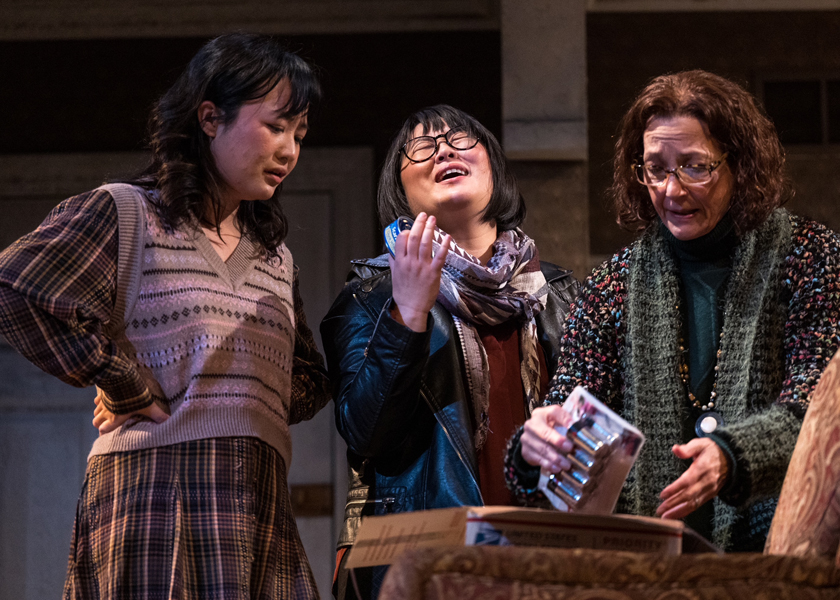Multi-racial casting creates a new take on a famous play | By Anne Holzman (Fall 2022)

The Humans, by Stephen Karam
(Directed by Lily Tung Crystal, Park Square Theatre, St. Paul, September 14 through October 9, 2022)
Park Square Theatre has staged a fast-paced, intense family drama of a celebrated play by Stephen Karam. Its casting of two Asian adult women in the lead roles suggests, but does not explicitly state, that the two adult daughters are Korean adoptees of white parents. Dramaturge Katie Bradley, a Korean adoptee, writes in her program notes, “It’s gratifying to finally see a family onstage that looks like my own.”
The Humans won Tony and Pulitzer awards for playwright Stephen Karam in 2016. The story takes place on Thanksgiving, in a New York City apartment that one of the daughters has just moved into with her boyfriend. Their guests are her parents, her grandmother, and her sister.
The reunion unfolds around dinner as the characters reveal recent developments in their lives, very few of them good. The grandmother’s dementia is clearly challenging for her caregivers (the host’s parents). Both daughters are struggling with careers, and the visiting one has a serious health issue. The boyfriend (who is also the chef) seems to be the only one on a positive footing, although he too reveals a past setback that may hamper his prospects.
The emotional energy onstage dives and crests and dives again as the family reveals its troubles, bobs back up with humor bolstered by food and drink, then emotionally sinks again as the story reveals more evidence that all may not be well. The characters argue and reconcile, violating all the prohibitions concerning Thanksgiving conversation by introducing money, religion and politics. The disasters pile on to the point of absurdity, and the final breakdown of the father, left alone in the apartment while everyone else goes out to meet their hired ride, seems almost farcical with blinking lights and thumping machinery.

The Park Square cast leavens the weighty material with quick repartee and physical warmth. Family traditions (an Irish round, grace before the meal) are portrayed with great energy. Laura Anderson and Dexieng Dae Yang, as the two sisters, play the full range of sibling emotions from cuddly to exasperated. The two men (Darrick Mosley as boyfriend Richard, and John Middleton as father Erik) left alone for a few minutes, face forward and raise beer bottles in tandem to toast shared grievances, a male cliché that draws audience laughter. A family photo album inspires nostalgia all around.
Noises from the apartment building are humorous at the expense of the country folk (the parents). The apartment becomes a character of sorts, interrupting the action with mysterious sounds and failing lights. Tensions revolve around the daughters’ choices to move back to cities that the grandmother worked her whole life to escape.
The grandmother’s rants, from deep in dementia, poignantly express raw emotions that other characters are trying to deny. Played by Angela Timberman, the grandmother, Momo, brings out the better selves in the other characters. They appear not to notice that when she delivers a coherent sentence, her pronouncements offer thematic material such as “Where do we go?” and “You never come back.”
By the end of the intense emotional ride of this story, staged as a single act with no intermission, everyone looks to be in grave danger of becoming unemployed, homeless, or worse. The characters drift off stage, leaving the father alone with his terror in the dark, noisy apartment. The moment that might have redeemed the family, when a daughter comes back looking for her father, is lost in his breakdown. At the end, we don’t see the family all getting into the van together and carrying on. All we see is the door banging as the father finally leaves.

The casting of the daughters as Asian, and the boyfriend as Black, is indeed a welcome innovation. There is a brief moment in the play, when the father pulls a prank on the boyfriend, that suggest that race might really matter. Apart from that, this play depicts a series of events that could happen in any family.
The play is emotionally persuasive, and the audience is left feeling compassion after witnessing this story, hoping the avalanche of events and emotions that unfold do not pile on for our own families the way it has for the Blakes. We can also hope for the resilience they display by having their dinner, caring for their elder and, after hashing out their differences, getting into the same van just to stay together a little longer.


